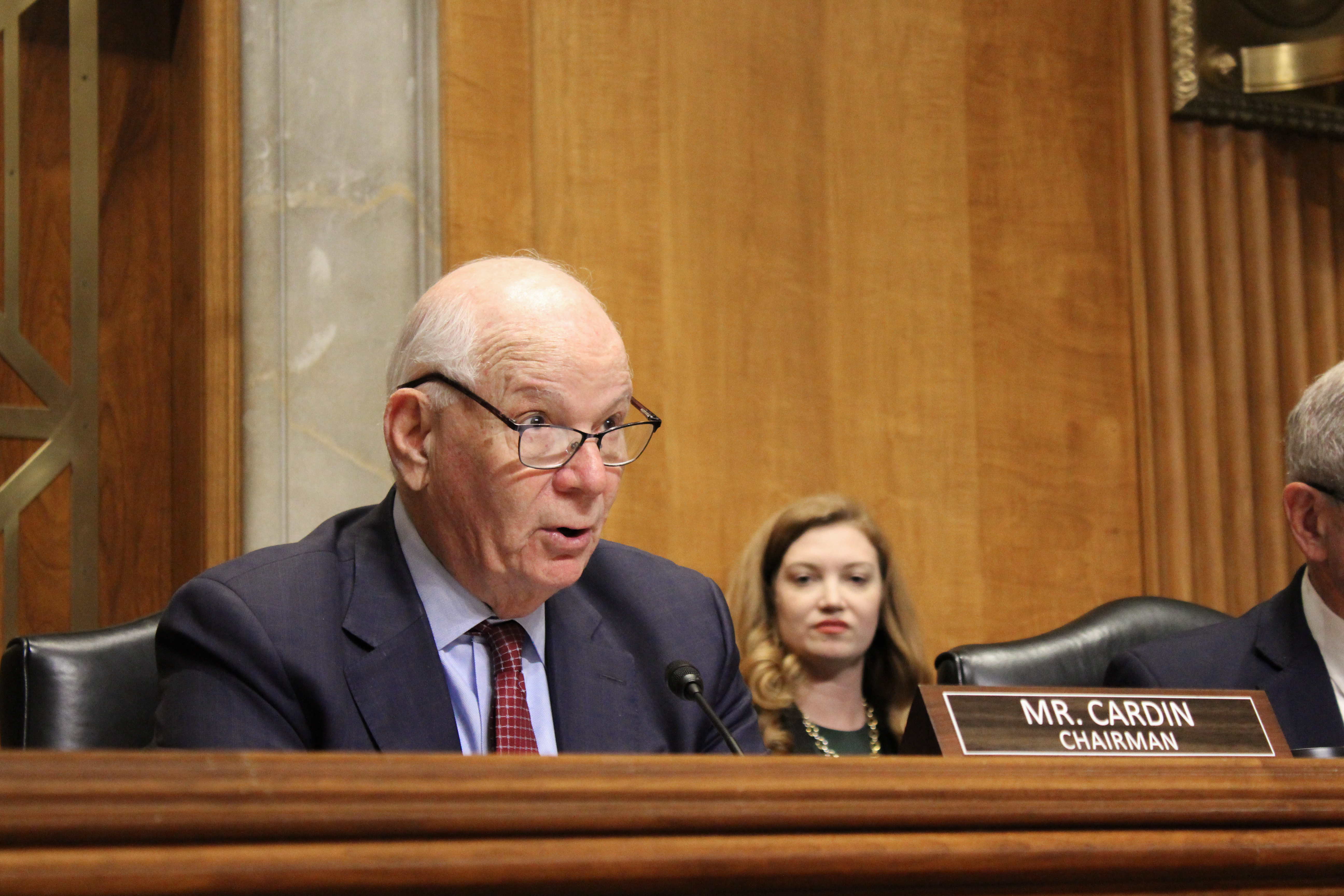Chair Cardin Opening Statement at Hearing on U.S. Anti-Corruption Strategy
WASHINGTON – Today, U.S. Senator Ben Cardin (D-Md.), Chair of the Senate Foreign Relations Committee, delivered opening remarks at the full Committee hearing, “Implementation of the U.S. Anti-Corruption Strategy,” where he stressed the importance of combatting corruption at home and abroad as a core national security priority.
“Our Founding Fathers understood that the temptation to take shortcuts is part of human nature,” said Chair Cardin. “Today, we must recognize that there will always be people in positions of power who will try to use their status to enrich themselves. The question is — how can governments address this? How do we prosecute it? How do we stop it? How do we mitigate it? Finding the answers to these questions is one of the keys to global peace and stability.”

WATCH THE CHAIR’S OPENING REMARKS HERE
More information about the hearing is available here.
Chair Cardin’s remarks, as delivered, are below.
Corruption is a cancer. It exists in every country and every society. It undermines the rule of law and good governance. It threatens the safety and security of people everywhere. And it empowers dictators and authoritarians, terrorists and criminals, all over the world.
From Putin’s 1.3 billion dollar Russian palace with a wine cave, an indoor hockey rink, and golden toilet brushes—that’s pretty good for a career public servant—this has been documented by Alexei Navalny’s anti-corruption foundation. To Xi Jinping’s so-called anti-corruption purge of nearly five million people to strengthen his hold on China. To Hungary, Mexico, Liberia, Indonesia, no country is immune.
Our nation’s Founding Fathers realized the threat of foreign influence. They included the Foreign Emoluments clause in our Constitution to prevent foreign governments that enriching those who serve in the highest office in our country. Our Founding Fathers understood that the temptation to take shortcuts is part of human nature.
Today we must recognize that there will always be people in positions of power who will try to use their status to enrich themselves. The question is—how can governments address this? How do we prosecute it? How do we stop it? How do we mitigate it?
Finding the answers to these questions is one of the keys to global peace and stability. I have long championed the fight against corruption here at home and abroad. In consultation with the State Department and USAID, Congress recently enacted my Combatting Global Corruption Act. It requires the State Department publish a public record on countries making progress against corruption to give them a pat on the back and encourage more to do the same.
And countries that are failing to make progress against corruption will be part of a report to Congress. It also asks administrations evaluate whether any foreign person in countries on the classified list should be sanctioned under the Global Magnistky Human Rights Accountability Act, which was made permanent when it was reauthorized in 2022. I want to underscore that the law asks the State Department to also present us with a budget for implementing this report each year, and moving forward. These are important tools in a long term fight against corruption—a fight that I am pleased to say the Biden Administration understands and has taken on with great gusto. In June of 2021, the administration published a national security memorandum establishing the fight against corruption as a core United States national security interest.
It says as clear as can be that corruption threatens our—“National security, economic equity, global anti-poverty and development efforts, and democracy itself.” Whether conducting oversight of aid in Ukraine, where the Administration has three inspectors general at work, or holding corrupt officials accountable as the Administration has done with over 80 visa restrictions and 61 designations of individuals under the Global Magnitsky law. There is still more we must do. United States officials doing the people’s business must set an example by maintaining the highest degree of integrity, which is why we also passed an amendment last year that bars senior State Department officials from lobbying for foreign governments for at least three years after they conclude their government service, and bars Secretaries of State and their deputies from lobbying for foreign governments for life.
These are the kind of concrete steps we take that we think can provide real-world results and show a model program for other nations to follow. I mentioned Russia at the start of my remarks and I want to ask to include in the record a statement prepared for today’s hearing by Maria Pevchikh, she is the chair of the board of directors of the anti-corruption foundation that was founded by Alexei Navalny. It is the source of some of the best information on corruption in Putin’s Russia, without objection, it will be included in our record.
I look forward to hearing from our witnesses and to see what is working around the world, what we could do more, and what additional steps you need from Congress, and how we can deal with this national security core concern in fighting corruption.
###